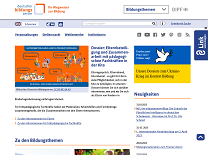In the framework of the Stability Pact for South Eastern Europe the Georg Eckert Institute for International Textbook Research ( Braunschweig/ Germany) developed a project aiming at the „Coordination of Textbook Research, Development and Textbook Comparison in South-East Europe“. The establishment of a virtual South-East Europe Textbook Network, which started in February 2001, is an integral part of this project. The Network is bound to a regional partner, the Philosophical Faculty of Zagreb University/ Croatia. One of the main aims of this Network is the development of institutionalised, durable possibilities for research and cooperation within and with the region. Up-to-date information on initiatives and results of the textbook situation from different countries as well as from the whole region make the Network a focus point of textbook research in South- East Europe. Along these lines the network carries out several tasks and services which will be gradually available in a medium term perspective: 1. Database (teaching materials, scientific literature on textbook research and relevant documents on education policy), 2. Information on Projects ( qualified information on ongoing projects and initiatives on textbook research and development in South-East Europe) 3. Networking and Coordination (database with links to institutions and organisations which are active within the international and regional framework of textbook research).
Bulgaria; Greece; Yugoslavia; Kosovo; Croatia; North Macedonia; Moldova, Republic of; Romania

